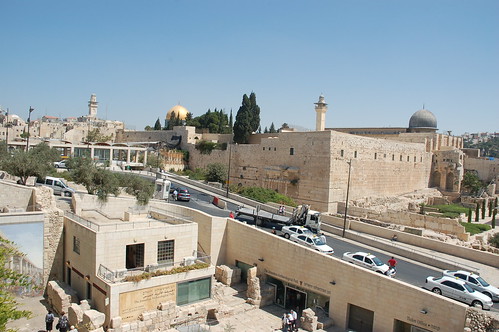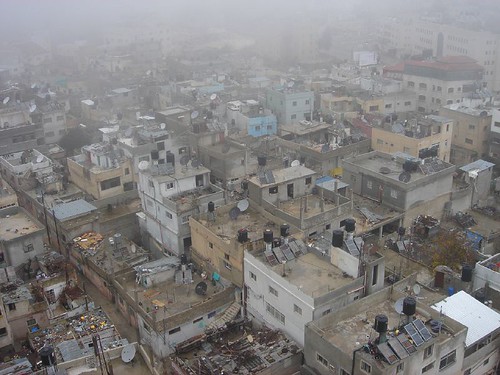Israeli authorities are raging this week, after what they perceive to be their deliberate exclusion from a World Archaeological Congress on Wednesday. The conference, which concerned ‘overcoming structural violence’ and the negative impact of politics on archaeology, was held in the Palestinian city of Ramallah. The Israeli Antiquities Authority is outraged on three fronts: that their experts weren’t informed of the event; that it was held in Palestine, which has a notoriously bad record on preserving ancient remains; and that the WAC conducted a tour of the Temple Mount and City of David Archaeological Park – even though both currently reside within Israeli hegemony.
In a furious letter to WAC president Claire Smith, IAA deputy director Dr Uzi Dahari accused the conference of perpetrating exactly what it has was formed to condemn – reports the Jerusalem Post. “We remind you that this is a conference organised by the World Archaeological Conference, and not a Palestinian archaeological organisation,” writes Dr Dahari. “This requires you to make it universal. The omission to include or invite Israeli speakers to address issues that directly affect their daily work shows that this conference is certainly not that.”
In a more strongly-worded exerpt, Dr Dahari complains that the conference included huge numbers of inaccuracies and insidious past-mastering which turned the event into little more than a political demonstration. The conference’s visit to the previously mentioned archaeological sites was another thing that has caused outrage in Israel, with Dr Dahari describing the tours as unethical and unprofessional. According to City of David official Doron Spielman, the event was orchestrated to “use archaeology as a guise to enforce an extreme political agenda to weaken Israel’s sovereignty in Jerusalem.”
However the WAC has hit back by insisting Israeli experts were told about the conference, and that many simply decided to boycott the event both to complain afterwards, and to protest at its location. Claire Smith also defended the tours, which she said are “being led by highly respected Palestinian and Israeli archeologists. These tours are to public areas and do not include visiting active archeological excavations,” Smith adds. “They’re timed so that delegates are free to gain additional knowledge through taking the normal paid tours. However, if you would like to send someone to provide an additional perspective, you would be welcome to do so.” Smith insisted the choice of location was because of the difficulty many Palestinian expertsc face when trying to leave their country: “Since it is difficult for Palestinian archeologists to interact with the international community, we decided to bring members of the international community to Palestinian archeologists,” she adds.
However Spielman has another gripe with the event being held in Palestine; namely the Palestinian track record with preserving priceless antiquities: Choosing to hold the conference in Ramallah (the seat of the Palestinian Authority) is ironic given that the Palestinian Authority-controlled Wakf carried out in 1999 what is likely the largest archeological devastation in recent history, when they bulldozed and dumped 13,000 tons of archeological earth from the Temple Mount,” he argues. “The international archeological community should be as outraged as we are by this farce, which sullied the very name of archeology as an academic discipline, which the conference supposedly supports.”
The involvement of politics in archaeology is hardly a new phenomenon: only recently the troubles in Kashgar have led archaeologists to argue they should be involved in national policy which endangers cultural heritage sites. The Iraq War has also seen thousands of Mesopotamian treasures vanish into the black market, as digs and museums were looted in the conflict’s early days, and Libya has seen some of its own stunning statues stolen.
The Israeli – Palestine chaos has even spread to the display of the Dead Sea Scrolls as far away as Canada, with more unrest set to visit Toronto when the Ten Commandments scroll goes on exhibition there in October.

